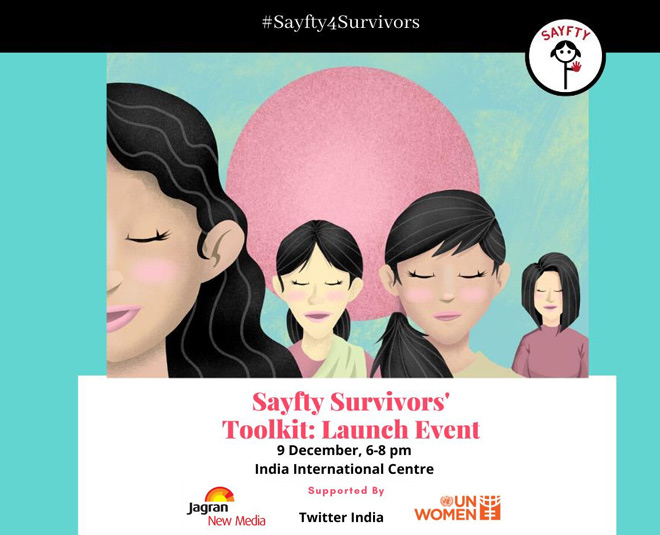
Jagran New Media is, in collaboration with Sayfty, UN Women & Twitter India, launching "The Sayfty Survivor's Tool Kit", with legal partners being Manupatra. This kit is for the survivors of sexual violence in India.
The participants at the two-hour long event will include representatives from the Women and Child Development Ministry, including those leading the effort of the One Stop Crisis Centers, law enforcement officials, civil society organizations, public and private practices working directly with survivors of sexual violence, youth groups, individuals, and members of the media.
It will be taking place on December 9 at India International Centre, 6-8pm.
With expert panelists present, a closer look will be taken at the various challenges that the survivors of sexual abuse face in India. At the event, the challenges will be addressed openly, be it about access to information, resources or professional help.
This is a part of a campaign which is in under the leadership of the UN Secretary-General, António Guterres, the United Nations Secretary-General’s UNiTE by 2030 to End Violence against Women campaign (UNiTE Campaign). It stands for action on a global level to spread awareness.
Sayfty also shared that "While the names, times and contexts may differ across geographic locations, women and girls universally experience rape, sexual violence, and abuse. The exact numbers of rape and sexual assaults is difficult to confirm."
In India, there are so many things, scenarios, reasonings, treatments which are wrong when we talk about sexual abuse of any nature. Some of the commonly harrowing questions that the survivors, victims face include “what were you wearing,” “why did you go there,” or “don’t tell anyone about it”. These negative reactions have a rather negative impact when it comes to the victim's recovery process. Even if the survivor tries to reach out for help, there are so many barriers that prevent them from getting justice.
View this post on Instagram
A research was carried out by Sayfty on the same lines and here are some key highlights that came out:
Don't Miss: These Indian Restaurants Promoting Sexual Harassment Will Boil Your Blood
The toolkit has used this research to provide data and insights curated from interviews with professionals and survivors to better convey the information on procedures and potential barriers.
According to Sayfty, this event will strive to:
Also watch this video
Herzindagi video
Our aim is to provide accurate, safe and expert verified information through our articles and social media handles. The remedies, advice and tips mentioned here are for general information only. Please consult your expert before trying any kind of health, beauty, life hacks or astrology related tips. For any feedback or complaint, contact us at [email protected].